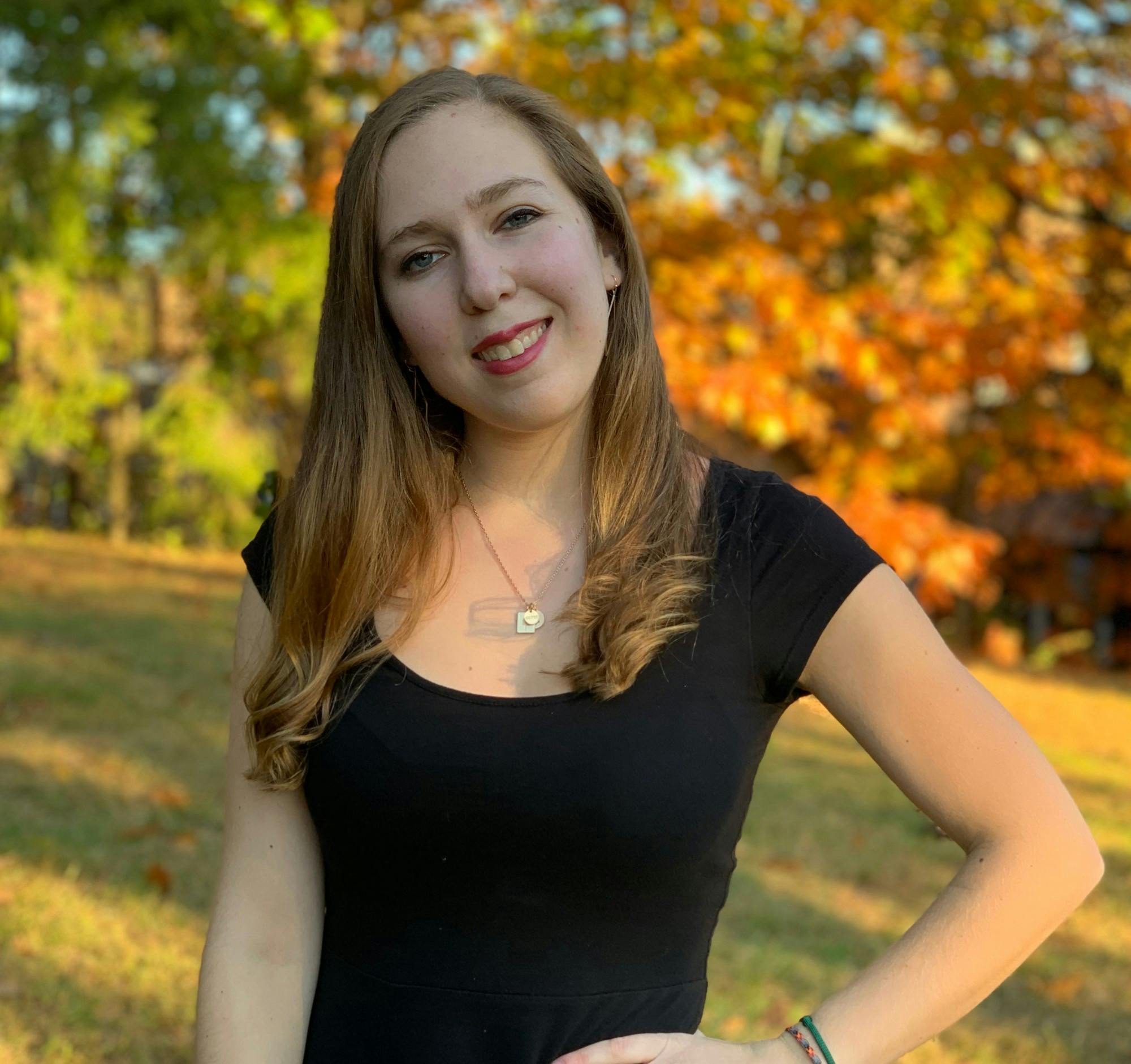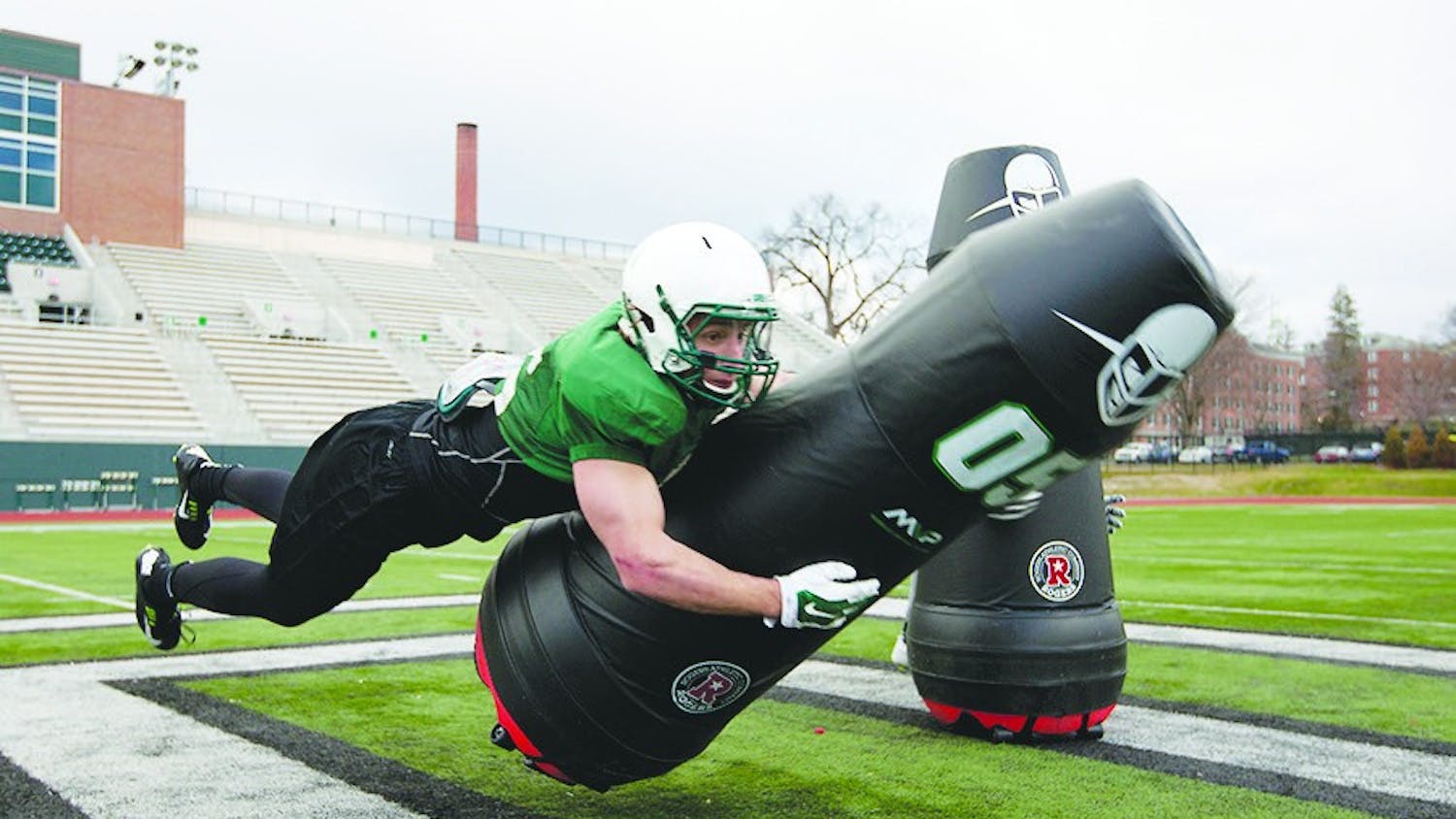Driving up to Hanover at the start of my freshman year, my imagination kicked into overdrive: I’d find my best friends, take amazing classes with life-changing professors, throw myself into the social scene and continue my passion for skating by joining Dartmouth’s figure skating club. Unfortunately, none of that came to fruition — at least not immediately.
During my First-Year Trip, I became one of the only people in Dartmouth’s history to sustain a serious injury while participating in the program. Despite picking one of the least physically strenuous trips (Hike and Yoga), I managed to get a concussion. Since freshman fall, I’ve had to explain the story of how it happened over and over again as people listened in disbelief. Yes, I rolled out of the bunk bed at the Lodj while I was sleeping and hit my head on the ground. Yes, I broke concussion protocol by going back to sleep afterwards, because I was too shy to wake anyone up and tell them what happened. Yes, this all actually did happen.
It took me a long time to seek treatment because I conflated many of my symptoms with the reality of adjusting to life at Dartmouth (and because Trips safety leads and Dick’s House staff members told me that I was probably fine). I had a hard time remembering people’s names, but that was just because I was meeting so many new people, right? I had constant headaches, but I told myself that I was just spending a lot of time outside and was probably dehydrated. I was cranky and irritable, but I chalked it up to homesickness.
When my symptoms became too much to bear — I had debilitating head pain and couldn’t comprehend or remember any written language longer than a few sentences — I went to Dick’s House for a physical evaluation. I cried when the nurse practitioner told me that I had almost all of the symptoms of a serious concussion and that I would have to practice strict rules to avoid “cognitive overload.” No studying for long periods of time, no partying, no physical activity. All of my expectations of what college would be like evaporated in the blink of an eye, as I realized that for the first few weeks of freshman fall, I would be confined to my dorm room and unable to participate in everything that Dartmouth had to offer. That was my first concussion, but it wouldn’t be my last — I was in a serious bicycle accident sophomore year that left me similarly affected (and gave me some nice stitches in my face that freaked out all of the sorority sisters that I talked to during fall rush).
Although I recognize that many people have experienced greater hardships at Dartmouth and beyond, my concussions have been some of the most life-changing aspects of my time in college. The healing process has profoundly shaped my college years and taught me a surprising amount about navigating this campus. (And to any potential future employers reading this and doubting my mental capacity: I’ve fully recovered and my brain is back to normal! Thanks for your consideration!)
During the terms I spent recovering from my concussions, I had to learn what it meant to engage in “self-care.” By this I don’t mean face masks and movie nights — I mean the kind of self-care that’s messy and unattractive and largely undiscussed. I had to take leaves of absence from activities, I switched out of classes, I limited my interactions with friends and I had constant FOMO — all things that I dreaded. In class, I had to face my fear of requesting extensions on assignments and telling professors that I didn’t understand what was going on. Ultimately, learning how to perform these tasks to preserve my health gave me the practice and the confidence to cope with less dire situations.
My concussions also taught me to not stress about minor issues. I can’t count the number of times that a small bump on the head — from hitting a pipe in the Sigma Delt basement to an accidental smack on the head in the cheering section of a Homecoming football game — would send me into a freakout. But after a minor meltdown and a few hours of rest, I would inevitably feel better and forget all about it. Learning to not stress helped me prioritize my time at Dartmouth on what really matters, instead of spending hours editing a reading response or working myself into a frenzy trying to figure out if a flitz was serious or just friendly.
Throughout the process of recovering from multiple traumatic injuries, I learned that pain doesn’t go away quickly. I found out how difficult it was to reintegrate myself into daily life after long periods of isolation. I struggled with self-esteem and imposter syndrome when I was unable to read and write, often feeling like I wasn’t smart enough to belong at Dartmouth. I realized how upsetting it was to hear other individuals casually say things like “I know how you feel” when I knew that they didn’t, or “at least you don’t have it as bad as [insert horrible situation here],” which just made me feel worse. Each of these incidents improved my ability to empathize closely with my friends’ pain, but also reminded me of my limited ability to perceive the full extent of their experiences.
Finally, my concussions gave me a newfound appreciation for all that our brains can do to sustain our lives at Dartmouth. I’m by no means anywhere close to a neuroscience major, but my experiences being temporarily unable to read, write, sustain a short-term memory or devise complex thoughts made me more conscious of the ways in which our brains allow us to take advantage of all of Dartmouth’s offerings. I love my friends, my classes and my communities on campus, and I wouldn’t be able to enjoy any of those aspects of my life without my health. Experiencing high levels of cognitive impairment put everything else in perspective and made the journey more worthwhile. Many of the things that I’ve been able to do at Dartmouth, from writing a senior thesis to being a four-year member of the figure skating team, are now more meaningful to me.
Throughout this past year, I’ve dreaded graduating from Dartmouth, which would mean that I’d have to live in a new environment without my best friends, my mentors and KAF’s brie and apple sandwiches. I’m upset that I lost so much of my Dartmouth experience to both my brain injuries and to the closing of campus during the COVID-19 pandemic. But I also feel incredibly grateful. While I was at Dartmouth, I learned to appreciate all that I can do. And I look forward to my future — no matter what it holds — knowing that the bumps along the way will ultimately make the journey more gratifying.




